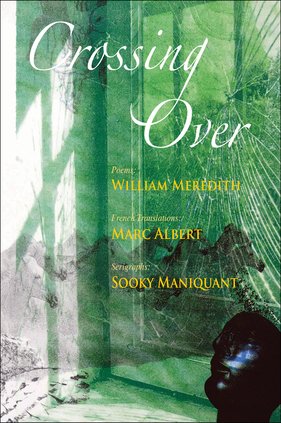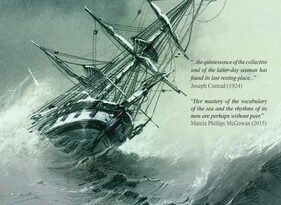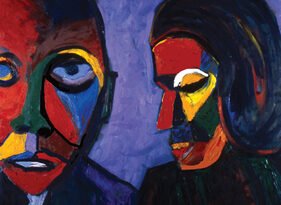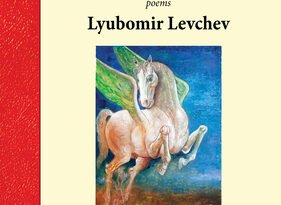Crossing Over
By William Meredith
Serigrahps by Sook Maniquant
French translations by Marc Albert
($29.95, (8.5” X 11”) Hardback, 60 pages, with 30 colored serigraphic reproductions)
A wonderful collection of poems in English and French from William Meredith, US Poet Laureate, winner of every major US award for poetry including the Pulitzer Prize, with French Translations by Marc Albert, and Serigraphs by Sooky Maniquant.
INTRODUCTION
The French Connection
A quiet evening in Lent, as the sun begins to set and Crossing Over makes its rapid way to publication, I find myself at a bit of a loss trying to remember the exact details of how this project first began. I guess William and I first met Sooky Maniquant in May of 1998 when William was invited to represent the United States at the 21st Annual French/English Poetry Festival in Paris. Our good friend Bill Barrett was working at the American embassy at the time and had arranged for an official visit. We may have met first at a dinner party given for us by the embassy or during the festival itself, but the attraction between Sooky and William was clearly immediate. After the festival, Sooky invited us to the Centre Européen de Poésie in Avignon to read our poems for her good friend, the Center’s Director, Marie Jaouannic, and invited us to her wonderful house and studio in the mountains of Provence. She also introduced us to her dear friend and collaborator, Marc Albert. It may have been during that visit that the idea first developed of working together on a series of serigraphs dealing with William’s poetry and my own. Sooky had already produced an exquisite series of serigraphs for the poetry of René Char and proposed that she create similar works for an art folio book to be titled “des ronds dans l’eau, Cercles magiques” And so we left France with a schema for the book, some initial translations and very high hopes.
It was on a second visit to France in 2002 when we really got down to business, as I recall. Sooky had managed to secure invitations for us to attend a book fair in Paris that July and to participate in the Arts Festival in Avignon. At the Marché de Poésie we met again with Jacques Rancourt, Director of a fine literary magazine dedicated to French/English translations, La traductière, and things began to hum. Several of the translations were eventually published in that fine journal. Sooky, Marc, William and I spent hours together, talking about our poems to be sure our colleagues understood all the nuances of the work and negotiating the sometimes differing views of how exactly the poems should find their way into the French language. William and I both had serviceable French, which made the process easier in one sense, but in another, complicated matters.
When William and I edited an anthology of Bulgarian poetry in translation entitled, Window on the Black Sea, I pointed out in the preface that many poets feel poetry can not be translated, that the best one can say is that, “that must have been a pretty good poem in the original.” Beyond a translator’s effort to pay attention to the rhyme and meter scheme of the original poem, as well as the stanza structure; the translator must consider how to make sure the idioms and cultural references are somehow understood in the target language. Political, historical, and philosophical considerations were particularly important in the Bulgarian translations. The many fine poets who tried their hand at the Bulgarian poems we were considering (having provided the translators with raw, literal translations, and bilingual speakers as a resource) showed a great range of approaches on the translation spectrum from those who insisted on a more literal translation to those whose work might more correctly be considered adaptations as in the case of Robert Lowell’s translations. William has said of the process of translation that, “the adaptation is almost as perilous as that of a chameleon moving from fire to water.” And Marc Albert has managed that transition brilliantly as far as my modest French can determine.
Sadly when we mounted an exhibition of Sooky’s serigraphs at the Lyman Allyn Museum in New London in 2006, she was by then too ill to attend the opening. We are left with just 12 of the works originally proposed for “des ronds dans l’eau, Cercles magiques.” But how lucky we are to have these at least.
As president of the foundation named for William after his death one important goal in publishing this book was to continue his legacy for a larger world audience. While occasional poems of William’s have been translated and published in French (among other languages,) Crossing Over now provides a healthy selection of his poetry enhanced so beautifully by his friends Sooky and Marc. As the title suggests, William’s poetry may now cross over into a language that has been called the language of diplomacy, the language of love to reach an entirely new audience. But sadly, it alludes to the fact that he has crossed over himself into the mysterious dimension of death. And it was only several weeks ago too that Sooky’s mortal presence left us. Each of them has crossed over into history now, but their spirits remain alive in this work, a fact we can celebrate.
Marc and Sooky both were adherents to the practice of Nichiren Buddhism, and when we sat together in Paris, William and I would occasionally join them in chanting: Nam Myoho Renge Kyo. A pilgrim like another, I don’t necessarily know or feel the full implications of this chant, but I continue to hope that we all get out of this life alive and that somehow Sooky and William approve, and bless what we have done hereby.
Richard Harteis
President, William Meredith Foundation




